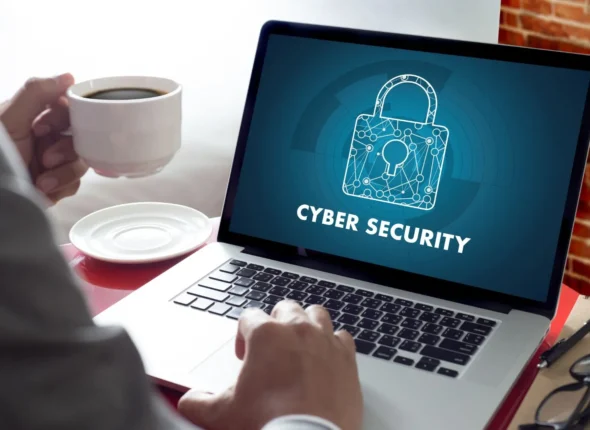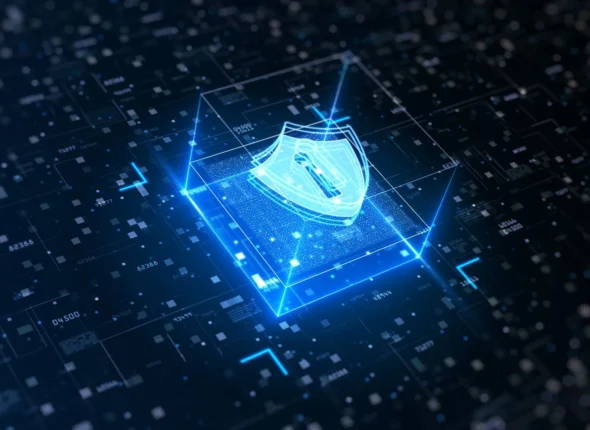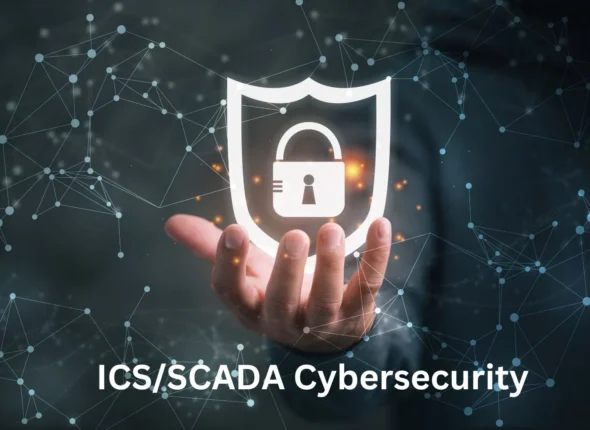Currently Empty: $0.00
About Course
EC-Council’s C|CT certification immerses students in well-constructed knowledge transfer. Training is accompanied by critical thinking challenges and immersive lab experiences that allow candidates to apply their knowledge and move into the skill development phase in the class itself. Upon completing the program, C|CT-certified professionals will have a strong foundation in cybersecurity principles and techniques as well as hands-on exposure to the tasks required in real-world jobs.
WHAT IS THE C|CT CERTIFICATION?
The C|CT is an entry-level cybersecurity program engineered by EC-Council, the creator of the Certified Ethical Hacker (C|EH) certification, to address the global need and demand for cybersecurity technicians with strong foundational skills.
WHAT IS UNIQUE ABOUT THE C|CT? PROGRAM

Job Roles
The C|CT certification prepares IT and cybersecurity professionals to handle a wide range of complex issues related to securing software, networks, and IT systems against common cyberthreats and attacks.
The C|CT offers a multifaceted approach that incorporates network defense, ethical hacking, and security operations to ensure that certification holders have a strong, well-rounded background that enables them to configure, analyze, and identify problems within an organization. The C|CT course equips participants with the skills required for the following roles:
- IT networking specialist
- Cybersecurity technician
- IT manager
- Network administrator
- Network engineer
- Security operations center (SOC) analyst
C|CT Key Offerings
- Strong Foundational Coverage: The C|CT certification provides total foundational cybersecurity domain coverage with key concepts in each domain combined with practical hands-on labs and critical thinking challenges producing world-class cyber security technologists.
- Live Range Experience: Other popular programs rely on simulation and interactivity as practical-based assessment, the C|CT program is delivered on a live Cyber Range utilizing live targets and real attack systems for a truly immersive, real-life practice and assessment platform.
- Most Affordable: The Despite the unique design of the heavily hands-on course and its uses of real-world cyber range capability, the certification is one of the most affordable in the world!
- Capture the Flag: The C|CT certification offers capture the flag (CTF) style critical thinking challenges to accompany each lab exercise putting knowledge into practice and providing a proven record of skill demonstration. Candidates completing the C|CT program will earn the C|CT certification and have a proven track record of performing the tasks required in a live Cyber Range, proving to employers their ability to perform critical job duties.
- Multiple Certifications: The course outline of the C|CT program goes above and beyond some of the more common entry-level cybersecurity programs, such as the Security+, in a completely hands-on cyber range environment instead of simulations to ensure cybersecurity skills development. We believe that candidates who successfully attain the C|CT certification will attain other leading cybersecurity certifications, including Security+, without further training
Exam Details
Exam Title: Certified Cybersecurity Technician
Exam Code: 212-82
Number of Questions: 60
Duration: 3 hours
Exam Availability Locations: ECC
Test Format: Multiple choice and Real Life hands-on Practical Exam
Exam Mode: Remote Proctoring Services
Passing Score: 70%
Training Duration: 5 days
Delivery Modes: Instructor-led training
iWeek (synchronous online learning)
iLearn (asynchronous online learning)
CodeRed (asynchronous online learning)
What Will You Learn?
- Key concepts in cybersecurity, including information security and network security
- Information security threats, vulnerabilities, and attacks
- Identification, authentication, and authorization
- The different types of malware
- Network security controls
- Application security design and testing techniques
- Cryptography and public-key infrastructure
- The incident handling and response process
- Concepts in business continuity and disaster recovery
- Risk management concepts, phases, and frameworks
- Fundamentals of virtualization, cloud computing, and cloud security
- Fundamentals of mobile, IoT, and OT devices and related security measures
- Wireless network fundamentals, wireless encryption, and related security measures
- Network troubleshooting, traffic and log monitoring, and analysis of suspicious traffic
- Data security controls, data backup and retention methods, and data loss prevention techniques
- Computer forensics and digital evidence fundamentals, including the phases of a forensic investigation
- Network security assessment techniques and tools (threat hunting, threat intelligence, vulnerability assessment, ethical hacking, penetration testing, configuration and asset management)
Course Content
Module 01: Information Security Threats and Vulnerabilities
-
Define Threats Sources
-
Define Threat Actors/Agents
-
Define Malware and its Types
-
Define Vulnerabilities
-
Understand Different Types of Vulnerabilities
Module 2: Information Security Attacks
-
Understand Information Security Attacks
-
Describe Hacking Methodologies and Frameworks
-
Understand Network-level Attacks
-
Understand Application-level and OS-level Attacks
-
Understand Social Engineering Attacks
-
Understand Wireless Network-specific Attacks
-
Understand IoT, OT, and Cloud Attacks
-
Understand Cryptographic Attacks
Module 3: Network Security Fundamentals
-
Discuss Information Security Fundamentals
-
Discuss Network Security Fundamentals
Module 4: Identification, Authentication, and Authorization
-
Discuss Access Control Principles, Terminologies, and Models
-
Discuss Identity and Access Management (IAM)
Module 5: Network Security Controls: Administrative Controls
-
Discuss Various Regulatory Frameworks, Laws, and Acts
-
Understand Information Security Governance and Compliance Program
-
Learn to Design and Develop Security Policies
-
Learn to Conduct Different Type of Security and Awareness Training
Module 6: Network Security Controls: Physical Controls
-
Understand the Importance of Physical Security
-
Discuss Various Physical Security Controls
-
Describe Workplace Security
-
Describe Various Environmental Controls
Module 7: Network Security Controls: Technical Controls
-
Discuss Essential Network Security Protocols
-
Discuss Security Benefits of Network Segmentation
-
Understand Different Types of Firewalls and their Role
-
Understand Different Types of IDS/IPS and their Role
-
Understand Different Types of Honeypots
-
Understand Different Types of Proxy Servers and their Benefits
-
Discuss Fundamentals of VPN and its importance in Network Security
-
Discuss Other Network Security Controls
-
Discuss Importance of Load Balancing in Network Security
-
Understand Various Antivirus/Anti-malware Software
Module 8: Network Security Assessment Techniques and Tools
-
Discuss Threat Hunting
-
Discuss Various Threat Intelligence Feeds and Sources
-
Discuss Vulnerability Assessment
-
Discuss Ethical Hacking Concepts
-
Understand Fundamentals of Penetration Testing and its Benefits
-
Understand the Fundamentals of Configuration Management and Asset Management
Module 9: Application Security
-
Understand Secure Application Design and Architecture
-
Understand Software Security Standards, Models, and Frameworks
-
Understand Secure Application, Development, Deployment, and Automation
-
Application Security Testing Techniques and Tools
Module 10: Virtualization and Cloud Computing
-
Understand Virtualization Essential Concepts and OS Virtualization Security
-
Understand Cloud Computing Fundamentals
-
Discuss the Insights of Cloud Security and Best Practices
Module 11: Wireless Network Security
-
Understand Wireless Network Fundamentals
-
Understand Wireless Network Encryption Mechanisms
-
Discuss Different Types of Wireless Network Authentication Methods
-
Discuss and Implement Wireless Network Security Measures
Module 12: Mobile Device Security
-
Understand Various Mobile Device Connection Methods
-
Discuss Various Mobile Device Management Concepts
-
Discuss Common Mobile Usage Policies in Enterprises
-
Discuss Security Risks and Guidelines Associated with Enterprises Mobile Usage Policies
-
Discuss and Implement Various Enterprise-level Mobile Security Management Solutions
-
Discuss and Implement General Security Guidelines and Best Practices on Mobile Platforms
Module 13: Internet of Things (IoT) and Operational Technology (OT) Security
-
Understand IoT Devices, Application Areas, and Communication Models
-
Discuss the Security in IoT-enabled Environments
-
Understand OT Concepts, Devices, and Protocols
-
Discuss the Security in OT-enabled Environments
Module 14: Cryptography
-
Discuss Cryptographic Security Techniques
-
Discuss Various Cryptographic Algorithms
-
Discuss Various Hash Functions and Cryptography Tools
-
Discuss PKI and Certificate Management Concepts
-
Discuss Other Applications of Cryptography
Module 15: Data Security
-
Understand Data Security and its Importance
-
Discuss Various Data Security Controls
-
Discuss Data Backup, Retention, and Destruction
-
Discuss Data Loss Prevention Concepts
Module 16: Network Troubleshooting
-
Discuss Network Troubleshooting
-
Learn Troubleshooting Basic Network Issues using Utilities and Tools
Module 17: Network Traffic Monitoring
-
Understand the Need and Advantages of Network Traffic Monitoring
-
Determine Baseline Traffic Signatures for Normal and Suspicious Network Traffic
-
Perform Network Monitoring for Suspicious Traffic
Module 18: Network Log Monitoring and Analysis
-
Understand Logging Concepts
-
Discuss Log Monitoring and Analysis on Windows Systems
-
Discuss Log Monitoring and Analysis on Linux
-
Discuss Various Log Management Tools
Module 19: Incident Response
-
Understand Incident Response Concepts
-
Understand the Role of First Responder in Incident Response
-
Describe Incident Handling and Response Process
Module 20: Computer Forensics
-
Understand the Fundamentals of Computer Forensics
-
Understand Digital Evidence
-
Identify the Roles and Responsibilities of a Forensic Investigator
-
Understand the Forensic Investigation Process and its Importance
-
Discuss Various Forensic Investigation Phases
-
Digital Evidence Sources to Support Forensic Investigation
-
Collecting the Evidence
-
Securing the Evidence
-
Overview of Data Acquisition
-
Performing Evidence Analysis
Module 21: Business Continuity and Disaster Recovery
-
Understanding Business Continuity (BC) and Disaster Recovery (DR) Concepts
-
Discuss BC/DR Activities
-
Understanding Business Continuity Plan (BCP) and Disaster Recovery Plan (DRP)
Module 22: Risk Management
-
Understand Risk Management Concepts
-
Discuss Various Risk Management Phases
-
Understanding Various Risk Management Frameworks
Student Ratings & Reviews
5.0
Total 1 Rating
5
1 Rating
4
0 Rating
3
0 Rating
2
0 Rating
1
0 Rating
Enrolling in the Cybersecurity Technician program was a wise investment in my future. The curriculum was comprehensive and up-to-date, focusing on essential skills like malware analysis, endpoint security, and security monitoring. The instructors were knowledgeable and supportive, guiding us through complex concepts with clarity. I would recommend this program to anyone looking to break into the cybersecurity field.



